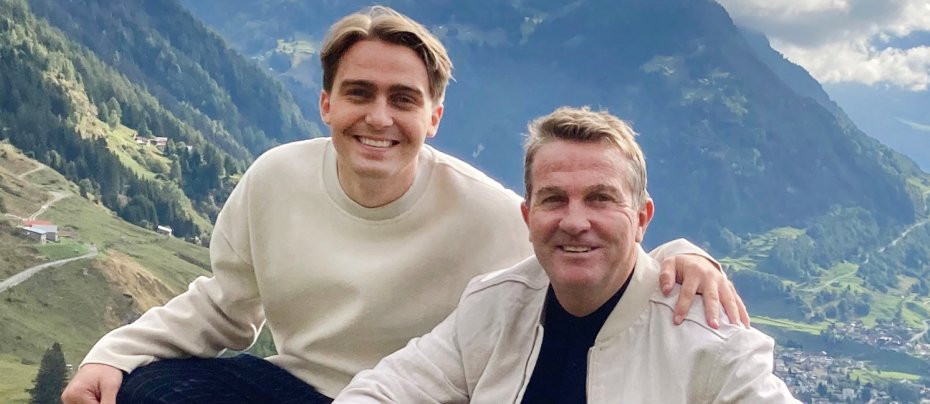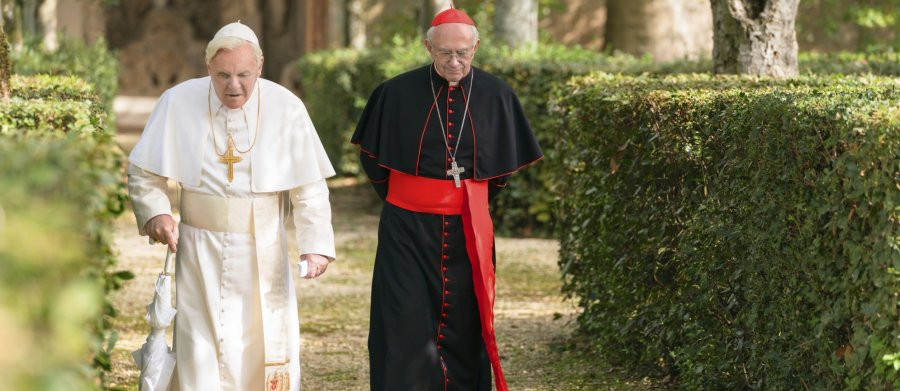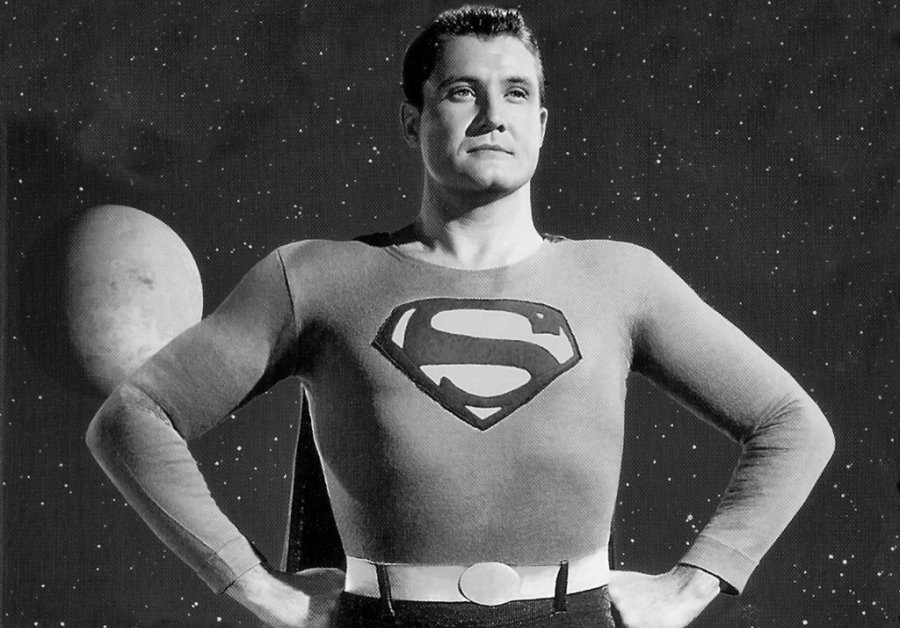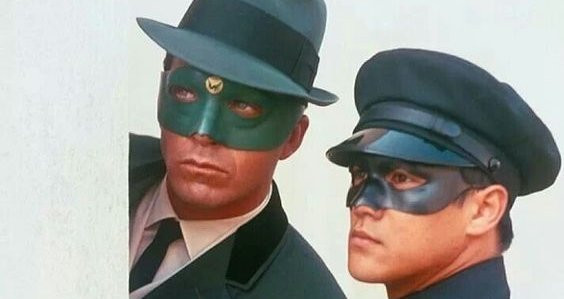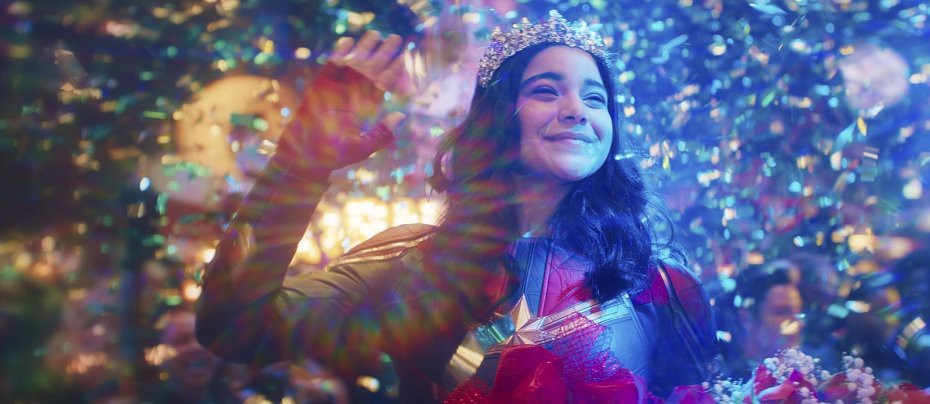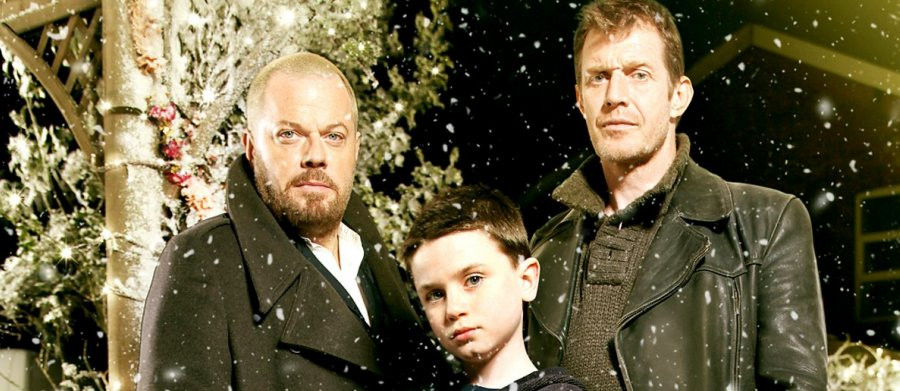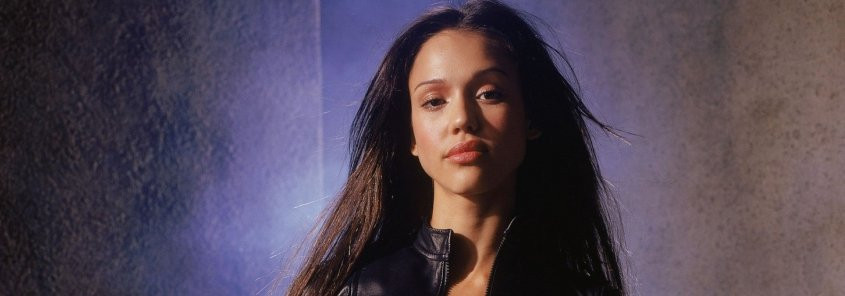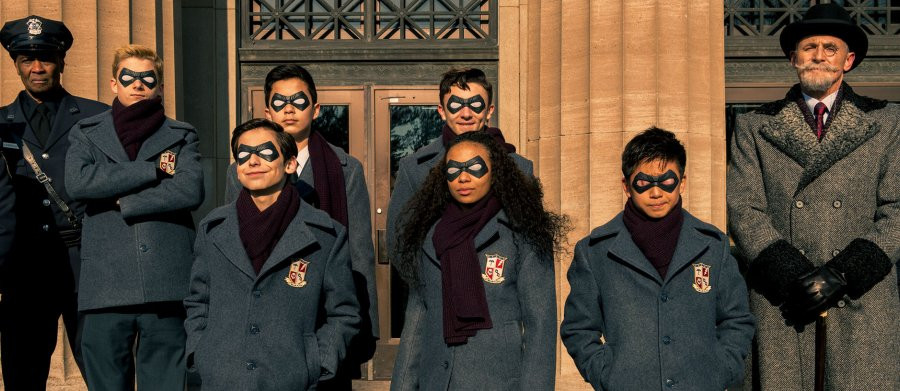
The Umbrella Academy
2019 - United StatesReview of Seasons 1 to 4 by Daniel Tessier
Among the influx of comic book adaptations, The Umbrella Academy stands out for its bizarre premise, strange visual stylisation and banging soundtrack. Beneath all this, though, is a touching and finely acted story of flawed family relationships.
Unlike many of the comic book adaptations currently about, I've not read Gerald Way and Gabriel Ba's original 2007 comic series. I understand there were considerable changes from the comics, but I'm going to be viewing this as a televisual experience. It's actually a real pleasure to watch a comic book adaptation without a good idea of what's going to happen, although there is a certain predictability to how the plot develops in the first season, if you're familiar with comic book tropes.
The Netflix series was created and overseen by Steve Blackman, who had previously won an Emmy for his work on Fargo and also made significant contributions to series such as Altered Carbon, Bones and Legion. Jeremy Slater (My Spy, 2015's Fantastic Four) developed the series for the screen, with multiple writers and directors working on individual episodes. Nonetheless, there's a consistent and gripping tone to the series, which discards many traditional superhero and comic book trappings in favour of its own vision. Skin-tight costumes and superhero code names are kept to a minimum, in favour of complex family dynamics and strained emotional relationships.

The series opens on the 1 October 1989, when forty-three women around the world spontaneously become pregnant, come to terms and give birth, within moments. This is a pretty terrifying opening, but only serves as the basic set-up for the series, and remains tantalisingly unexplained. Seven of the children are adopted, or rather purchased, by Sir Reginald Hargreeves (Colm Feore – Trudeau, House of Cards – whose performance definitely suggests they'd have cast John Hurt if they'd made it a few years earlier).
Hargreeves, believing the end of the world is imminent, trains the children to become superheroes, but his cruel and unforgiving treatment of them, along with the nature of their mysterious powers, damages all seven of them in significant ways. While there are numerous flashbacks to their time as the child superhero team the Umbrella Academy, the series proper takes place in roughly the present day, as the Hargreeves siblings come together for the first time in years following the sudden death of their adoptive father.

The siblings, and the cast, are exceptional. Number One, Luther Hargreeves, the only one who remained loyal to their father, is a super-strong astronaut whose body has mutated into a Hulk-like form, which he keeps hidden under an oversized greatcoat. He's played by Tom Hopper (Game of Thrones, Black Sails, Merlin) who plays him with reserve and constraint, with a stunted emotional growth due to many years of isolation. Number Two, Diego Hargreeves, is the only one to continue in the superhero life. A Batman-esque vigilante with a fractious relationship with the police, his skill is the ability to curve the trajectory of any object he throws, easily the most believable and mundane of the siblings' powers. Diego is portrayed by David Castañeda (Southland, Jane the Virgin), who imbues him with a reckless arrogance.
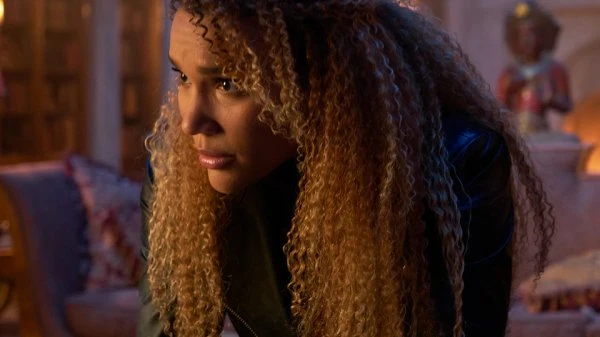
Number Three, Allison Hargreeves, is a beautiful and famous actress, whose history as a superhero hasn't stopped her becoming a movie star. Her ability is to control people's minds when she utters the phrase “I heard a rumour...” It certainly hasn't harmed her career, but has torn apart her family. The only one of the siblings who has managed a committed adult relationship, the temptation to use her power in her private life became too much to resist. Emmy Raver-Lampman (Central Park, Heels) makes her a sympathetic, human character in spite of her terrifying power and lofty status.

Everyone's favourite, Number Four is Klaus Hargreeves, who seems the most obviously damaged of the siblings. An alcoholic, drug-addicted hedonist, Klaus is cursed with the ability to see the dead, something he attempts to drown out with his substance abuse. He later develops his ability to the point where he can manifest the dead as well. Klaus is played by Robert Sheehan (Misfits, Love/Hate, Fortitude) as a flamboyant, genderqueer goth, and while he appears quite a shallow character early on, he displays great emotional depths as the series continues. Perhaps not coincidentally, Sheehan's character on Misfits also had the ability to see the dead amongst his powers. Number Six, Ben Hargreeves, is deceased by the time of the main setting, implied to be a result of his power, which is frankly nightmarish and involves tentacles and lots of blood. Portrayed by Justin H. Min, (Beef, After Yang) he initially appears rarely, and only to Klaus, but unexpected developments result in an increased prominence as the series progresses.
Number Seven, Vanya Hargreeves, is the outsider of the family and, it appears, an ordinary human being, with no special powers. A mild-mannered violinist, Vanya has alienated the siblings by publishing an autobiography that revealed the truth about their father's treatment of them. Vanya is played by Elliot Page, easily the most famous actor on the cast, with plenty of superhero film experience (Kitty Pride in the X-Men films, Libby on Super) but more notably award-winning roles in Hard Candy, Marion Bridge and Juno among many more. Page is as excellent in the role as we'd expect, giving a subtle, relatable performance and hinting at Vanya's hidden depths. Vanya's story is crucial to the first season, and throughout the entire run, Vanya experiences huge changes and revelations.
You'll notice that we've skipped Number Five. Never given a full name, Number Five is missing at the outset of the main events, before dropping back into the fray rather spectacularly part way through the first episode. Gifted with the ability to jump through space and time, Five leapt into a post-apocalyptic future, where he survived for decades before being recruited by a time-travelling organisation. Finally making it back to his family, he has his own mission to avert the apocalypse his father foresaw, but his escape back through time has the side effect of reverting him to the age he was when he first leapt. Now stuck in the form of a thirteen-year-old boy, he is played by Aiden Gallagher (Nicky, Ricky, Dicky and Dawn). Gallagher is astonishingly good as Number Five. In spite of being fifteen when filming this, he absolutely convinces as a middle-aged man, hardened by life, and frustrated by being trapped in a child's body.
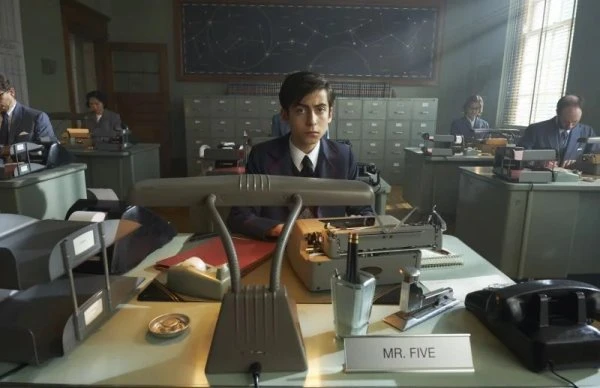
It's an excellent core cast, portraying a group of people with unnatural abilities and the sort of fractious sibling relationships that even the most harmonious family would display. The family is completed by Grace Hargreeves, an android who serves as the siblings' mother, played by Jordan Claire Robbins (12 Monkeys), and Pogo, a highly intelligent chimpanzee who was something of a protégé to the late Sir Reginald. Pogo is voiced by Adam Godley, whose face was used for performance capture for the CGI ape, while Ken Hall provided the bodily motion capture and on-set presence. Pogo is one of the more likeable and, ironically, human members of the family.
This is merely the central family of the series, who remain the focus of events, but are far from the only protagonists. Number Five is being pursued by his former employers, who set two hitmen after him: Cha-Cha (singer and actor Mary J. Blige) and Hazel (Mindhunter star Cameron Britton). The two assassins are astonishingly violent but have a fascinating relationship and are as fascinating to watch as the Hargreeves family. Hazel, in particular, is a remarkably sympathetic figure for brutal murderer, who develops a truly sweet romance with a waitress named Agnes (Sheila McCarthy, who won awards for Emily of New Moonand The Lotus Eatersamong others). Behind these two is the Handler, played charismatically and manically by Kate Walsh (13 Reasons Why, Grey's Anatomy). Ignored by the others during much of the events, Vanya forms a relationship with one Leonard Peabody (John Magaro, Orange is the New Black, Tom Clancy's Jack Ryan), who has secrets of his own.

This is just the set-up. Over ten episodes, characters fight, are captured, framed for murder, commit murder, cross space and time, explore life after death, possibly meet God, and move ever closer to the apocalypse. It's an extremely violent series, but the violence is a stylistic choice, heavily choreographed and backed by incongruous yet effective musical choices. Each fight is more like a bloody music video; for instance, Number Five's return to the present day is greeted by a SWAT team, who are taken out to the stirring tune of They Might Be Giants' nineties rock cover of “Istanbul (Not Constantinople).” The soundtrack to the series features everything from Queen to Radiohead.
However, the most memorable musical choice comes halfway through episode one, where Tiffany's “I Think We're Alone Now” is played through the Hargreeves house and each of the siblings dances to it in their own style. The camera pans back away from the house, the rooms displayed in a cross-section that creates the image of panels on a comic book page. It's a visual and musical triumph that sets the style for the series, but more importantly, it tells you everything you need to know about the siblings' differing personalities. It's a great example of how the series uses is unique look and feel to illustrate its story.
Above all, The Umbrella Academy is about family, and the bizarre events, audio-visual spectacles and climactic disasters are there to explore how the siblings' upbringing and experiences affect them and their relationships. As strange as individual events are, the overall storyline treads a path that is easy to predict for anyone who's seen or read this kind of comic book narrative before. This really doesn't matter though. The sheer style of the show and the performances of the central cast in season one make this a triumph, never-bettered in the series' run.
After this first season rapidly became a popular and critical success, it was obvious that Netflix would greenlight a second run. As with many series these days, the season was put into very rapid production, just narrowly getting in the can before the COVID-19 pandemic led to the shutdown of television and film production. Filming was completed in November 2019, and with post-production working from home, season two was able to make its 2020 release.
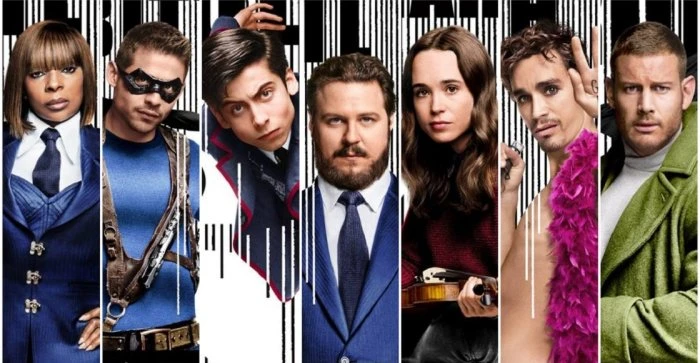
The new season is based on the second series of the original comic, subtitled "Dallas," which should provide a fairly solid idea of the setting. After leaping into time with Number Five in a desperate attempt to escape the end of the world, the seven Hargreeves siblings arrive in Dallas in the 1960s. However, while they all land roughly in the same spot, they don't arrive at precisely the same time and are spread over several years.
Five (Aiden Gallagher) arrives on November 25th, 1963, three days after the Kennedy assassination (at least in the original timeline). Instead of a mourning but prosperous America, he finds the world on the brink of nuclear Armageddon. An elderly Hazel (Cameron Britton, making a brief return from season one) rescues Five, transporting him back ten days, explaining that he and his siblings have that long to save the world.
Shifting the series to a period setting is a clever way of keeping things fresh, and kicking off with the apocalypse rather than ending with it is an effectively shocking way to kick things off. Naturally, the soundtrack is absolutely amazing, and laden with sixties favourites plus reimaginings of hits. Although it's set in and around Dallas, it's filmed, like the first season, in Canada, but you wouldn't know it. The season is far more timey-wimey (to steal a Doctor Who phrase) than the first, which is saying something really, with history rewritten multiple times in the attempt to put things right. Added to this, of course, is that the seven siblings, in spite of being born on the same day, are now all different ages due to time travel. Amusingly, for Five, who's the oldest but looks the youngest, the main events of the series so far have taken only a fortnight.
There's a wonderful element of farce to the earlier episodes, as the siblings' lives continually intersect but they never quite run into each other, until Five's presence catalyses events. Sixties preoccupations - Reds under the bed and so on – have their influence, but it's the Kennedy assassination that everything revolves around. Diego and Five (along with local conspiracy theorist Elliott – Kevin Rankin), investigate into the event, only to discover that their father was involved. The past setting allows Hargreeves to appear in his prime, leading to a wholly different dynamic when the siblings encounter him.

The first episode is titled "Right Back Where We Started," and there's definitely a feeling that we've done a lot of this before. Much of the plotline seems like a retread of season one, in particular the role of Vanya in the impending apocalypse. The details and setting, though, keep things feeling fresh, with new focus on certain characters and some genuine developments for each of the siblings as they come to terms with their pasts. It's all, naturally, bloody, atmospheric, colourful and hilarious, and there's a more consistent tone to the season this time round. The most significant change is the addition of Lila, a troubled but remarkably powerful fighter who has a close link to the Hargreeves and becomes a main character, her allegiance shifting through the series. Ritu Arya (Doctors, Paris Has Fallen) plays Lila with an incredibly likeable but often frightening unpredictability.
In the third season, things have changed. The second season cliffhanger saw the six surviving Umbrellas arriving back in their own house in 2019, around the time they originally left, only to find that it's no longer their home: it is now the Sparrow Academy. Ben, their late brother, is alive, as is their overbearing and abusive father.
Very loosely based on the third volume of the comic series, subtitled Hotel Oblivion, season three keeps things fresh and interesting by introducing a new cast of characters and bringing in new and surprising developments for the existing ones. Dropping the Hargreeves family into an altered timeline, without any support but each other, means that they have to rely on each other more than ever. This is, for the Hargreeves, something of a challenge.
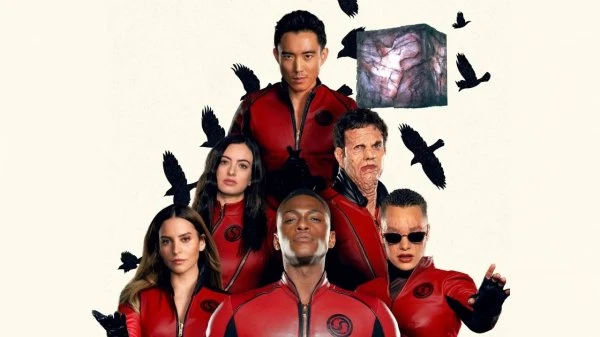
Having met and been thoroughly disappointed in his children in 1963, Sir Reginald made a decision to adopt a different set of the miraculous children who were all born on the same day in 1989. The Sparrows are, on the face of it, a well-oiled machine with concerning power over their city. Having never met Ben (due to his being decidedly ghostly at the time), Reginald still adopted him, but in this timeline, the loveable and supportive Ben has been replaced by an obnoxious, aggressive... well, dickhead is the word the others use, and they're not wrong. Min gives a brilliant performance that has hints of the quiet, insecure Ben beneath the surface. In this reality, Ben is Number Two of the Sparrow Academy, having been pushed out of first place due to his complete inability to lead.
For all their dysfunction and mutual aggravation, the Umbrellas do provide a lot of support for each other in this new reality. Most notable is the emotional journey for Viktor – formerly Vanya. To reflect Elliot Page's high-profile transitioning, the series' writers decided that Number Seven would also transition, as part of his ongoing realisation of his identity. Page was reportedly happy to continue playing the character as Vanya, but the writers were committed to telling this story. They worked with Page to tell the story, and the show handles it beautifully. It's not played as some huge revelation or source of drama and angst, but as a simple moment of truth that all Viktor's siblings accept and honour. At various times the different siblings have issues with Viktor, but never because of his gender identity.
With their family home now occupied by the Sparrows, the Umbrella siblings make their base of operations in the Hotel Obsidian, a luxury tower where anything goes, and which has a mysterious connection to Sir Reginald. The one constant in the hotel is the front desk manager, Chet (Julian Richings –Supernatural, Kingdom Hospital), who seems remarkably unperturbed by the bizarre goings on in and around his establishment. While their immediate problem is the kugelblitz, the siblings find themselves drawn into a far deeper plot that reaches back to their very beginnings.
Season three boasts some fantastic concepts, brought to life by cinema-worthy effects, and, as always, a spectacular soundtrack. The core cast are tremendously impressive throughout, bringing new depths and surprising characteristics to their already heavily-explored roles. However, this season never quite reaches the heights of the first two. The third season wants for a single, focal baddie, and takes some time to settle down and decide just who the Umbrellas should be fighting. Nonetheless, it's extremely well-done, endlessly watchable stuff, until the last episode which does provide an anti-climax, albeit one that changes the nature of the series and the characters' lives.
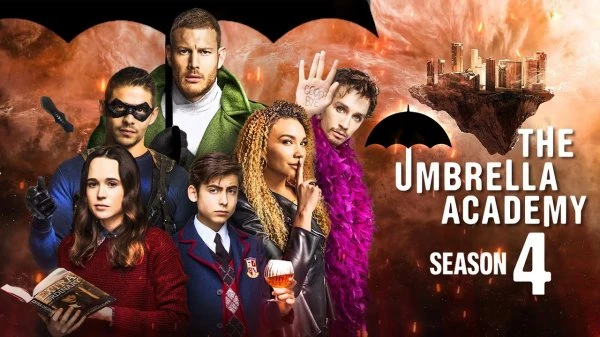
A fourth season arrived in August 2024, picking up quite some time after the game-changing end of season three. A truncated run of six episodes (compared to the usual ten) could have meant a tighter, more focused story, but after a promising start, the final season goes off the boil with illogical, bizarre and frustrating plot developments. The continual changes to the timeline have had catastrophic effects, and while there are some wonderful moments, particularly an emotional storyline for Lila, Diego and Number Five, the series stampedes to a climax that is somehow both utterly over-the-top and a cop-out. It's a pity for The Umbrella Academy to end on such a dissatisfying note, but the series as a whole is one of the most entertaining, exciting, and weirdly touching series of recent years. It remains a standout of the genre.
Seen this show? How do you rate it?
Seen this show? How do you rate it?
Published on March 16th, 2020. Written by Daniel Tessier for Television Heaven.


